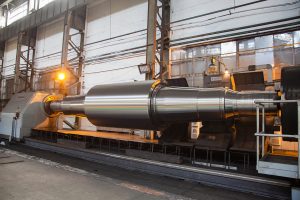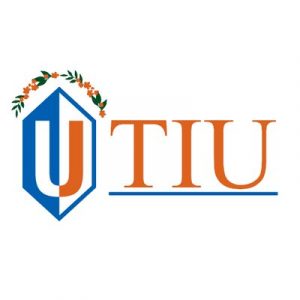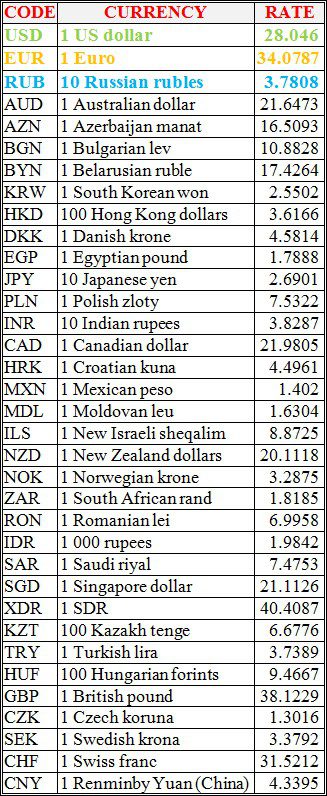
PJSC Energomashspetsstal (Kramatorsk, Donetsk region), owned by Russia’s Atomenergomash (Rosatom state corporation), in 2020 increased steel production by 6.8% compared to the previous year, to 63,000 tonnes.
A source in the industry told Interfax-Ukraine that 3,000 tonnes of steel were produced in December.
As reported, Energomashspetsstal in 2019 reduced steel production by 4.8% compared to 2018, to 59,000 tonnes.
Energomashspetsstal is the largest Ukrainian manufacturer of special cast and forged products of individual and small-scale production for metallurgy, shipbuilding, energy (wind, steam, hydro, nuclear) and general mechanical engineering.

On Wednesday, the business court of Kyiv will hear a court case under a claim of TIU Canada, owned by Refraction Asset Management (Calgary, Canada), against Nikopol Ferroalloy Plant (NFP) due to the disconnection of its 10.5 MW solar power plant from the power grid in March 2020 year.
“Today’s hearing is the first date for the trial since the completion of the preliminary hearing last month,” TIU Canada said in a report, which is available to Interfax-Ukraine.
According to the report, the solar power plant with a capacity of 10.5 MW was disconnected by the NFP from the power grid on March 2, 2020 “despite the fact that only electricity producers have the right to initiate the disconnection of the plant from the power grid in accordance with Ukrainian law.”
TIU Canada aims to immediately restore the connection to the electric grid and plans to bring NFP and its shareholders to full responsibility in accordance with the legislation of Ukraine, the company said.
The company said that NFP took advantage of the fact that the solar power plant was connected to a substation located on its territory, and explained the need for shutdown by carrying out repair work.
According to TIU Canada, the illegal shutdown caused over EUR 1.5 million in losses to the company, which “continue growing every day.”
At the same time, the company refers in the report to the high assessment of its activities by the President of Ukraine Volodymyr Zelensky at Ukraine Reform Conference in Toronto in July 2019, who noted the priority of developing green energy and thanked the company for its work in this area.
“Now this case is becoming a test of President Zelensky’s readiness to protect foreign investors in Ukraine,” TIU Canada said.

Sem Ecopack LLC (Tomakivka, Dnipropetrovsk region), part of Effective Investments Group, intends to invest about UAH 170 million in the creation of a new production of ecological cardboard packaging Sem Ecopack in Sambir (Lviv region) with a capacity of 150 million units of packaging products per year.
“The new production will appear on the site of the former bakery. Sem Ecopack LLC has acquired the real estate of the plant from Khlibprom Concern,” the press service of Effective Investments told Interfax-Ukraine.
Sambir bakery was part of Khlibprom concern (associated with founder of OKKO Group Vitaliy Antonov) and was closed in 2018 by the decision of the management of the concern.
The press service of the group noted that at the first stage Sem Ecopack plans to invest about UAH 70 million in the restoration of the existing production complex and more than UAH 100 million during the next stages. The new production facility in Sambir is planned to be commissioned in early 2022.
“I hope that in a year Facebook will remind me of these ruins, and I will show you an already operating production here! An inspiring story when you can build a European-level enterprise from the ruins with the export of products to Europe,” head of the group’s supervisory board Ihor Liski wrote on Facebook, accompanying the post with photographs of the premises of the former bakery in Sambir.
According to the press service, currently Sem Ecopack LLC, established in 2014, is developing two areas: the production of ecological packaging and mechanical engineering, while the engineering direction uses more than 80% of Ukrainian components.
National bank of Ukraine’s official rates as of 13/01/21

Source: National Bank of Ukraine

The new team is going to strengthen the educational direction of the contest and expand the circle of its potential participants
NGO Presszvanie Ukraine, the initiator of the contest for journalists PRESSZVANIE, is reshuffling its board. Journalist and blogger Denys Bezliudko will become Chairman of the Management Board. The board will include Chief Editor of the magazines Dengi and Korrespondent Oleksandr Kramarenko, as well as Marketing Director of the Interfax-Ukraine news agency Maksim Urakin.
“The new board of NGO Presszvanie Ukraine includes experienced media managers who have raised more than one generation of journalists. These are professionals for whom freedom of speech and journalistic ethics are integral parts of life. This team is able to provide the PRESSZVANIE contest with new avenues for work meeting the challenge of the times,” ex-head of NGO Presszvanie Ukraine Dmytro Slipenko said.
“I probably went through all the stages, I was a nominee and a winner, participated in the work of the Supervisory Board of the contest and in organizing the work of PRESSZVANIE. The strategic plan is to grow the contest into a permanent media community, a platform for communication, training of journalists and development of the industry as a whole,” Bezliudko said.
“For me, this is a new challenge and an opportunity to repay the debt to the profession, since until now I have not been particularly active in the interests of the professional community in general. What do we do? We will create a platform for passing on the most interesting ideas and visions. We will involve those colleagues whom the old media simply did not notice until recently. Professional ratings are an opportunity for recent debutants to raise their personal capitalization, which is very important for each of the media professionals and for the market as a whole,” Kramarenko said.
“The award will receive more nominations for traditional journalism and the involvement of representatives of the new media – bloggers – in the project. In addition, an educational program, as well as other projects to improve the qualifications of media representatives, will be created under the PRESSZVANIE brand and with the participation of leading industry professionals,” Maksim Urakin said.
Reference
PRESSZVANIE is an annual award for journalists and editors that can be received for leadership and professionalism since 2005. The project develops an educational platform and is held under the auspices of NGO Presszvanie Ukraine, which mission is to create conditions for the development of Ukrainian journalism.